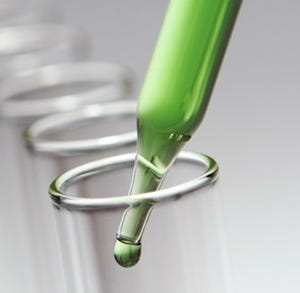New Reverdia patents strengthen biosuccinium licensing
Pivotal patents have been granted to DSM (Sittard, Netherlands) in Europe, Japan and Canada for its innovative yeast-based succinic acid production technology, with exclusive rights awarded to Reverdia, a DSM-Roquette joint venture company that is also headquartered in the Netherlands. The new patents cover key technology, which is essential to make economically viable and sustainable biobased succinic acid.
February 13, 2015
Pivotal patents have been granted to DSM (Sittard, Netherlands) in Europe, Japan and Canada for its innovative yeast-based succinic acid production technology, with exclusive rights awarded to Reverdia, a DSM-Roquette joint venture company that is also headquartered in the Netherlands. The new patents cover key technology, which is essential to make economically viable and sustainable biobased succinic acid.
 Most succinic acid today is produced from fossil resources. Reverdia was established in 2010 for the development and commercialization of sustainable succinic acid as a joint venture between the Dutch life sciences company Royal DSM and Roquette Frères, a global starch and starch-derivatives company headquartered in France. The company markets its product under the name Biosuccinium.
Most succinic acid today is produced from fossil resources. Reverdia was established in 2010 for the development and commercialization of sustainable succinic acid as a joint venture between the Dutch life sciences company Royal DSM and Roquette Frères, a global starch and starch-derivatives company headquartered in France. The company markets its product under the name Biosuccinium.
Reverdia's Biosuccinium is a drop-in replacement for fossil-based succinic acid that is used in a variety of industry applications, such as solvents, pigments, food flavors and the emerging market for biodegradable polybutylene succinate (PBS). The availability of biobased succinic acid will also open new applications like (non-phthalate) plasticizers, resins and polyester polyols for polyurethanes.
Reverdia opened a large-scale biobased succinic acid plant in Cassano Spinola, Italy, in December 2012, the first large-scale production facility for biobased succinic acid in the world. Reverdia is the first and only company commercially employing yeast technology to convert biobased feedstock into succinic acid. The process is simple, stable, energy efficient and since operated at low pH values, it generates very little waste (no salts). This results in a unique, high-quality product with a best-in-class environmental footprint and economics, as demonstrated by the published cradle-to-gate LCA by the University of Utrecht.
Reverdia President Marcel Lubben said, "Reverdia has developed and commercialized best-in-class, sustainable yeast-based biosuccinic acid technology, proven at commercial scale in our plant located within the Roquette Italian biorefinery. These latest patents are key to making biosuccinic acid commercially viable."
He added that the company will be offering access to this technology under license, in line with the licensing strategy announced in October 2014. This is a clear advantage for companies that want to integrate biosuccinic acid production into their business offering, enabling competitive biobased materials.
"Reverdia will continue to strengthen its patent portfolio to ensure the best and most defensible technology offering for its licensees," he said.
About the Author(s)
You May Also Like


